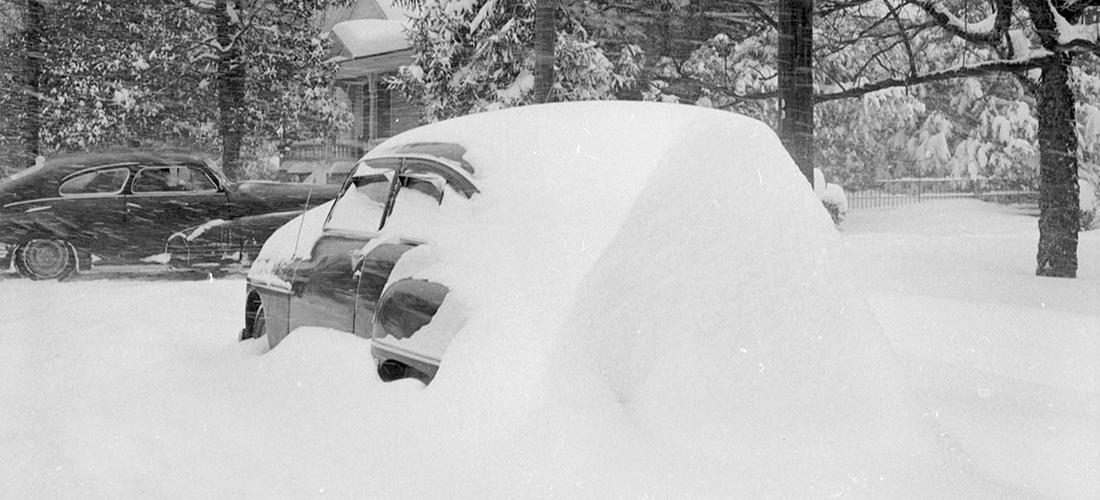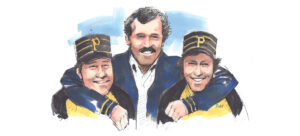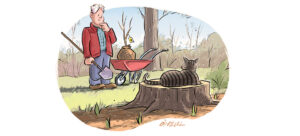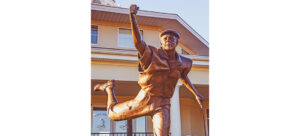
When ice storms coat the pines
By Bill Fields
Let’s face it, the winters aren’t very wintry in the Sandhills. The place never would have taken off if they were. Golf, horseback riding and walking down lanes that smell better than any candle are, at their essentials, ways of thawing out.
That said, anyone who experienced the ice storms of the late-1960s — there were doozies in January of ’68 and February of ’69 — hasn’t forgotten them. For those of us not around in 1954, they were our Hurricane Hazel. Each winter storm affected a large swath of the state, with the Southern Pines-Pinehurst area practically ground zero for an inch or more of freezing rain followed by significant snowfall.
It was a sadistic snow globe of precipitation, the weight turning pine trees into matchsticks and making power lines as weak as rotted twine.
The weather turned nasty after sunset during both storms, as I recall, which meant that you heard the damage before seeing it. There were a dozen or so longleafs in our yard, along with sycamores, maples and cedars. The neighbors had plenty of trees, too, with undeveloped acres across the street, ensuring that the snap, crackle and pop went on for hours as trunks and branches were overmatched by the elements, a number of them sabotaging electric cables as they crashed down.
My parents’ legitimate worries — and mine, as I struggled to go to sleep while Mother Nature wreaked havoc — about something big falling off and hitting the house were unrealized, but the morning light revealed a mess. Many trees that weren’t broken were bowed as if waiting for a giant archer, limbs and needles glistening in a gorgeous yet destructive coating of ice.
After our street was scouted for downed wires, the icy-snowy surface made for great sledding. The conditions outside were not ideal for our gray tabby, Linus, but that didn’t stop him, the night after the ’68 winter storm, from climbing a pine tree in our next-door neighbor’s front yard and ending up on an icy branch unwilling or unable to get down.
Cats can make quite a sound if they’re in love or get their tail caught in a closing door, but trust me, the meow-howl-distress call of a domestic feline stranded 20 feet off the ground on a cold, frosty night is a singular noise. The following day, no number of familiar faces below him could coax Linus down from his perch. My father had to borrow from another neighbor an extension ladder, its rungs icy as well, to go up and rescue our cat. Linus warmed up, eventually. He lived out his days without repeating such drama but was never again enthusiastic about joining me at my summer hideaway on a lower branch of a dogwood on the east side of our yard.
If you’re 8 or 9 years old, a week without electricity is an adventure. A motel was contemplated but my father — hoping it would be a shorter outage and mindful that $19.95-a-night would add up — decided to purchase a kerosene oil heater to keep us from freezing if we huddled in just a couple of rooms. Despite a pungent smell, it allowed us to warm up soup and wieners and make grits for breakfast, the limited menu broken up by a few restaurant visits.
We went through a lot of D batteries in flashlights and radios. We read, played checkers and listened to basketball games. We paid particular attention to WEEB if there was an update about when the lights — and heat — might come back on.
As the outage continued, I became as eager as Mom and Dad for the electricity to be restored. We weren’t a camping family — my father had far too much of the real thing during World War II — and it was starting to feel like camping out. Our neighborhood lines were some of the last in town to be repaired, causing us to stay on the lookout for a Carolina Power & Light crew like it was a Brinks delivery with our name on it. Seven days after the winter storm arrived, the tool-belted CP&L linemen showed up in their bucket truck. As we were returned to the 20th century, we were as grateful to them as Linus had been to Dad.
It was a good long while before we had hot dogs for supper. PS
Southern Pines native Bill Fields, who writes about golf and other things, moved North in 1986 but hasn’t lost his accent.





